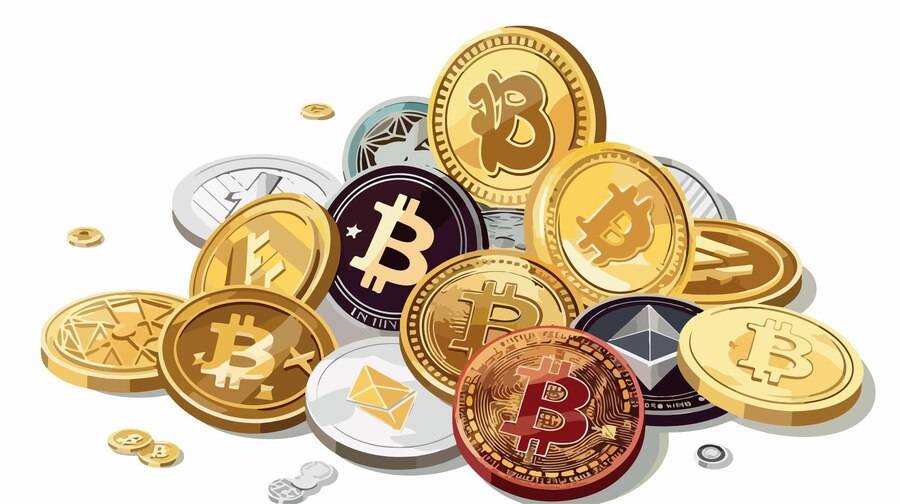![]() Cryptocurrency, once seen as a niche interest of tech enthusiasts, has become a powerful cultural phenomenon influencing everything from music and art to television and social media. The rise of Bitcoin, Ethereum, and other digital assets has spilled into popular culture, blending financial technology with creative expression, celebrity endorsements, and even humor.
Cryptocurrency, once seen as a niche interest of tech enthusiasts, has become a powerful cultural phenomenon influencing everything from music and art to television and social media. The rise of Bitcoin, Ethereum, and other digital assets has spilled into popular culture, blending financial technology with creative expression, celebrity endorsements, and even humor.
This article dives into the ways cryptocurrency has entered the mainstream, influencing various aspects of popular culture and gaining fans in unexpected places.
1. Crypto in Music and Entertainment
Cryptocurrencies and blockchain technology have given rise to new opportunities for artists in the music and entertainment industries. Musicians like Snoop Dogg, Grimes, and Kings of Leon have embraced crypto by offering exclusive albums, songs, and concert tickets as NFTs (non-fungible tokens). NFTs, which are unique digital assets representing ownership of a piece of content, allow artists to directly engage with fans while providing new revenue streams beyond traditional platforms.
The music industry’s embrace of crypto reflects a broader trend toward decentralization, where artists regain control of their work without relying on record labels or other intermediaries. This shift is also appealing to fans who can now purchase, collect, and trade exclusive digital collectibles tied to their favorite artists.
- Notable example: In 2021, Kings of Leon released their album "When You See Yourself" as an NFT, giving fans the chance to purchase exclusive content and perks through blockchain technology.
2. Crypto and the Art World: NFTs Go Mainstream
Crypto’s impact on the art world has been especially pronounced. Digital artists who once struggled to monetize their work have found a thriving market for NFTs, which allows them to sell pieces as unique, ownable items on the blockchain. The NFT boom has empowered digital artists by providing them with a platform for recognition and revenue.
The crossover of NFTs into mainstream art has captured the attention of prestigious auction houses like Sotheby’s and Christie’s, which now hold NFT auctions. Artists such as Beeple (who sold an NFT for over $69 million) and Pak have garnered mainstream media coverage, and even traditional artists have started experimenting with digital assets.
- Notable example: Beeple’s NFT artwork, "Everydays: The First 5000 Days," was auctioned by Christie’s and became one of the most expensive pieces ever sold by a living artist.
3. Crypto in Television and Film
Television and film have picked up on the cultural relevance of crypto, with popular shows and movies referencing digital currencies and blockchain technology. Cryptocurrency is often depicted as a symbol of financial freedom or, conversely, as a tool for nefarious activities, depending on the narrative. Shows like Silicon Valley, Billions, and The Simpsons have referenced Bitcoin and blockchain, bringing cryptocurrency terminology and concepts into everyday conversation.
More recently, streaming platforms and indie filmmakers have explored crypto not just as a subject but also as a funding method, allowing viewers to invest in projects and be part of the production process.
- Notable example: In 2019, The Simpsons dedicated an entire segment to explaining blockchain and cryptocurrency, further solidifying digital currencies as a household concept.
4. Celebrity Endorsements and Crypto Influencers
Celebrities have played a huge role in bringing crypto into popular culture. Stars like Elon Musk, who frequently tweets about Bitcoin and Dogecoin, have stirred massive public interest. Social media personalities have also jumped in, creating a whole genre of "crypto influencers" who discuss market trends, promote tokens, and offer investment tips to millions of followers.
Crypto’s celebrity endorsements, while helping to drive mainstream adoption, also spark controversy, as fans are sometimes misled by influencer-backed "pump and dump" schemes, where tokens are hyped up only to crash in value once the hype subsides.
- Notable example: In 2021, Paris Hilton sold a collection of NFT art, capitalizing on the crypto trend and introducing her fans to the digital collectibles market.
5. Crypto Memes and Humor
Crypto’s rise has been accompanied by an explosion of memes that shape the public’s perception of digital currencies. Memes like "HODL" (a typo turned motto that stands for "Hold On for Dear Life") and "to the moon" have become iconic phrases in the crypto community, symbolizing the hope of significant profits and resilience against volatility. Dogecoin, a cryptocurrency born from a meme, epitomizes the blend of humor and finance, having skyrocketed in value partly due to social media enthusiasm and celebrity support.
The prevalence of crypto memes has made digital currency discussions more approachable, inviting people who might otherwise feel intimidated to join the conversation. This fusion of humor and finance creates a unique sense of community among crypto enthusiasts.
- Notable example: Dogecoin’s journey from a "joke coin" to a multi-billion-dollar asset exemplifies the power of memes in the crypto world.
6. Social Media’s Role in Crypto Popularity
Social media has been instrumental in popularizing cryptocurrency, especially among younger audiences. Platforms like Twitter, Reddit, and TikTok have become hubs for crypto communities, where users share advice, post real-time market updates, and support each other through the unpredictable ups and downs of digital currencies. Twitter’s crypto culture is especially influential, with hashtags like #Bitcoin, #Ethereum, and #NFT regularly trending and drawing attention to new developments.
Reddit’s r/CryptoCurrency and r/WallStreetBets forums were instrumental in the 2021 "meme stock" phenomenon and have since inspired similar campaigns within the crypto space. TikTok also contributes with quick, informative (and sometimes speculative) crypto videos that appeal to a new generation of investors.
- Notable example: The "Doge Army" on Reddit and Twitter helped push Dogecoin to new heights in 2021, showcasing how online communities can influence the crypto market.
7. Crypto's Role in Video Games
The intersection of crypto and gaming has introduced a new genre known as "play-to-earn," where players can earn cryptocurrency or NFTs through gameplay. Games like Axie Infinity and Decentraland have gained popularity by offering players the chance to earn digital assets, creating real value from virtual worlds. For gamers, these crypto-based ecosystems present an opportunity to monetize their time and skill, blending entertainment with investment potential.
Game companies are also exploring NFTs as a way for players to own and trade in-game items, adding a new layer of value to digital gaming assets. While this concept is still in its infancy, it holds significant potential for the gaming industry's future.
- Notable example: Axie Infinity, a blockchain-based game, became one of the most popular play-to-earn games, allowing players to earn AXS tokens and trade in-game assets as NFTs.
 Final Thoughts
Final Thoughts
Crypto’s integration into popular culture is more than a passing trend; it's reshaping how we think about money, creativity, and community. As cryptocurrencies continue to evolve, their influence on popular culture is likely to grow, touching every corner of media, entertainment, and social interaction. Whether it's through NFTs, crypto-themed memes, or blockchain-based video games, digital assets are becoming more embedded in our daily lives, blending technology with art, humor, and even identity.
With so many areas of popular culture embracing crypto, it’s safe to say that these digital currencies are here to stay—and their cultural impact has only just begun




No comments yet
Be the first to share your thoughts!